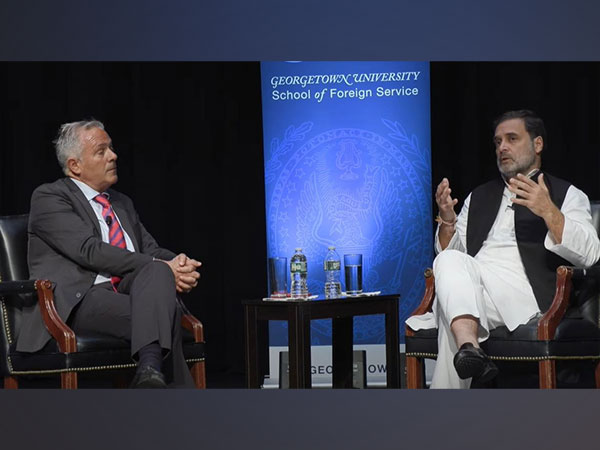Rahul Gandhi Critiques Modi's Tenure: Claims Psychological Collapse Amidst Political Challenges
During an address at Georgetown University, Rahul Gandhi commented on Prime Minister Narendra Modi's political journey, claiming psychological collapse and a collapse of the coalition that brought him to power. Gandhi asserts that Modi is now struggling to come to terms with recent election results.

- Country:
- United States
In a recent speech at Georgetown University in Washington, DC, Rahul Gandhi, the Leader of Opposition in Lok Sabha, took a sharp dig at Prime Minister Narendra Modi. Gandhi stated that the moment Modi claimed he could "speak directly to God," the Congress party knew he was facing significant psychological strain.
Rahul Gandhi outlined that PM Modi, having faced no political adversity during his tenure as Chief Minister of Gujarat and later as Prime Minister, is now experiencing a major ideological and psychological collapse. He noted that internal signals and intelligence reports during the election campaign indicated cracks in Modi's confidence and strategy.
The Congress leader further elaborated on the collapse of the coalition that initially brought Modi to power, suggesting that the relationship between the government and a few large businesses has deteriorated while marginalized communities suffer. Gandhi added that despite challenges like the freezing of Congress's bank accounts, the party fought hard and eventually shattered Modi's political image.
Gandhi, who is currently visiting the US, claimed that Modi is now 'psychologically trapped' and struggling to comprehend the election outcomes. Earlier in his US visit, Gandhi engaged with students and faculty at the University of Texas and addressed the Indian diaspora, emphasizing their critical role in bridging ties between India and the United States.
(With inputs from agencies.)










